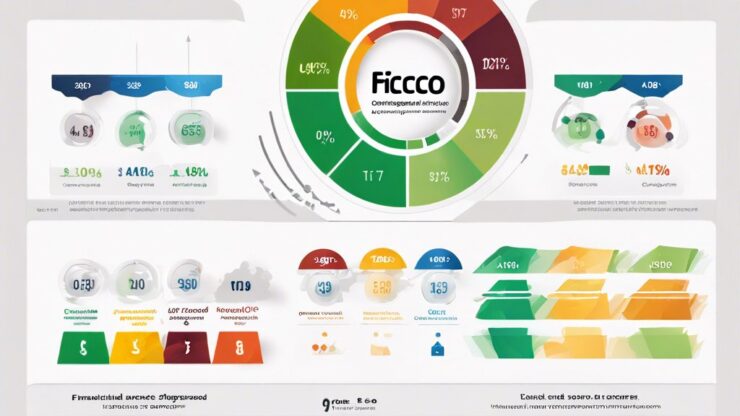When it comes to managing your finances and understanding your creditworthiness, two terms often come up: FICO Score and VantageScore. While both are crucial in determining your credit status, they differ significantly in methodology, scoring range, and even the data they utilize. Understanding these key differences can empower you to make informed financial decisions.
Both FICO and VantageScore utilize credit report data to calculate scores, but they do so in distinct ways. FICO Scores have been around since the late 1980s and are the gold standard in credit scoring. VantageScore, on the other hand, emerged in 2006 as an alternative developed by the three major credit bureaus: Experian, TransUnion, and Equifax. This difference in origin hints at the variation in their scoring methodologies.
Here is a concise comparison of the differences between FICO Score and VantageScore:
- Scoring Range: FICO Scores generally range from 300 to 850, while VantageScores range from 300 to 850 as well but categorize scores differently.
- Data Utilization: FICO Scores may use older credit data and can provide scores based on limited data. VantageScore utilizes more recent information and can generate a score even with fewer accounts.
- Weightage of Factors: FICO Scores emphasize payment history more heavily, while VantageScore gives more weight to recent credit behavior.
- Industry Specific Scores: FICO offers specialized scores for auto loans and mortgages, while VantageScore provides customized scores for various industries.
Understanding whether to monitor your FICO Score or VantageScore can significantly impact your financial strategy. Consumers often wonder which score to prioritize, especially when applying for loans or credit cards. Both scores can provide valuable insights, but lenders may have a preference for one over the other. Knowing the score your potential lender uses can give you a competitive edge.
To effectively manage your credit health, consider checking both scores regularly. This dual approach offers a comprehensive view of your credit status, enabling you to address any discrepancies or issues that may arise. Remember, your credit score is not just a number; it’s a reflection of your financial habits and responsibilities.
Disclaimer
This article has been created or edited with the support of artificial intelligence and is for informational purposes only. The information provided should not be considered investment advice. Please seek the support of a professional advisor before making any investment decisions.






